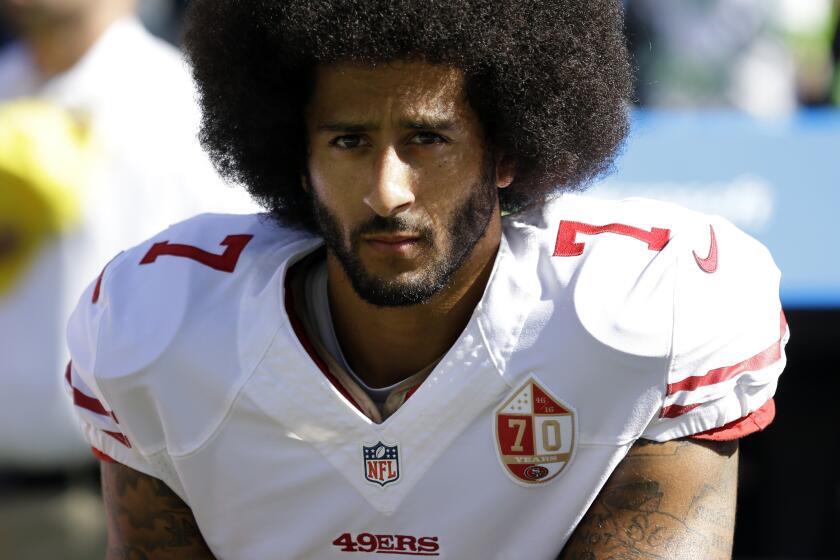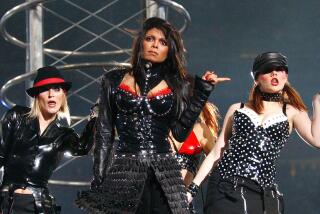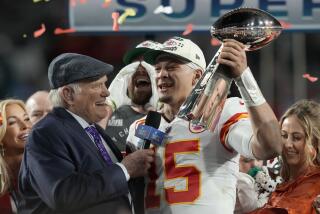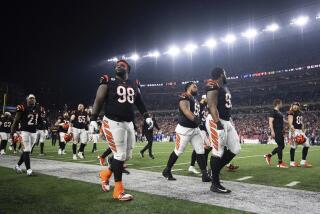Terrell Owens demands during Inglewood protest that NFL apologize to Colin Kaepernick
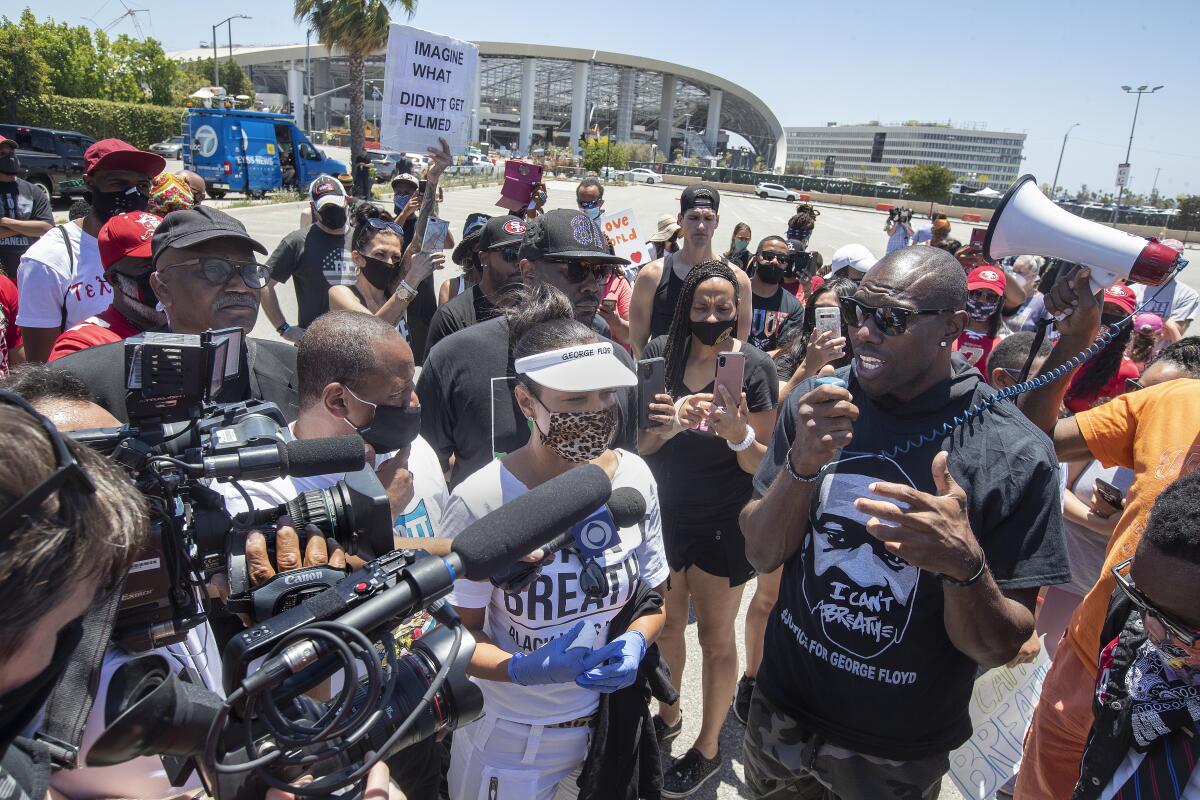
As Terrell Owens and other protesters knelt on the ground behind the Forum in Inglewood on Thursday to remember George Floyd, a man began to speak.
“We’ve been kneeling on this hot asphalt for not that long and it’s uncomfortable” the protester said. “Imagine what George Floyd felt.”
One of the other protesters responded: “It’s only been about five minutes. We still have a little longer to go.”
When the official stopwatch reached 8 minutes, 46 seconds — the amount of time a Minneapolis police officer knelt on Floyd’s neck two weeks ago as he died — Owens grabbed the microphone and thanked the people for showing their support.
“We just did that and we weren’t under any type of duress,” said Owens, who was enshrined into the NFL Hall of Fame in 2018. “We need to understand what he went through. His death has sparked a movement.”
Owens organized the peaceful protest around the SoFi Stadium construction site — honoring the lives of Floyd, Breonna Taylor and others killed by police — and when he spoke demanded NFL commissioner Roger Goodell give Colin Kaepernick a personal apology.
If that doesn’t happen, some of the organizers and attendants said they are willing to forego watching NFL games or buying any official merchandise.
“We wouldn’t be here right now if Colin didn’t do what he did,” said Owens, a six-time Pro Bowl wide receiver. “It’s all come full circle. I’m standing in the gap right now for my brother, and they owe this man an apology.”
It’s been nearly four years since Kaepernick, then a quarterback for the San Francisco 49ers, knelt during the national anthem in protest of police brutality and racial inequality. No team signed him when he entered free agency that offseason, and many suggested owners blackballed him for his activism.
The league eventually paid a multimillion dollar settlement to Kaepernick and then-teammate Eric Reid when they filed a collusion grievance.
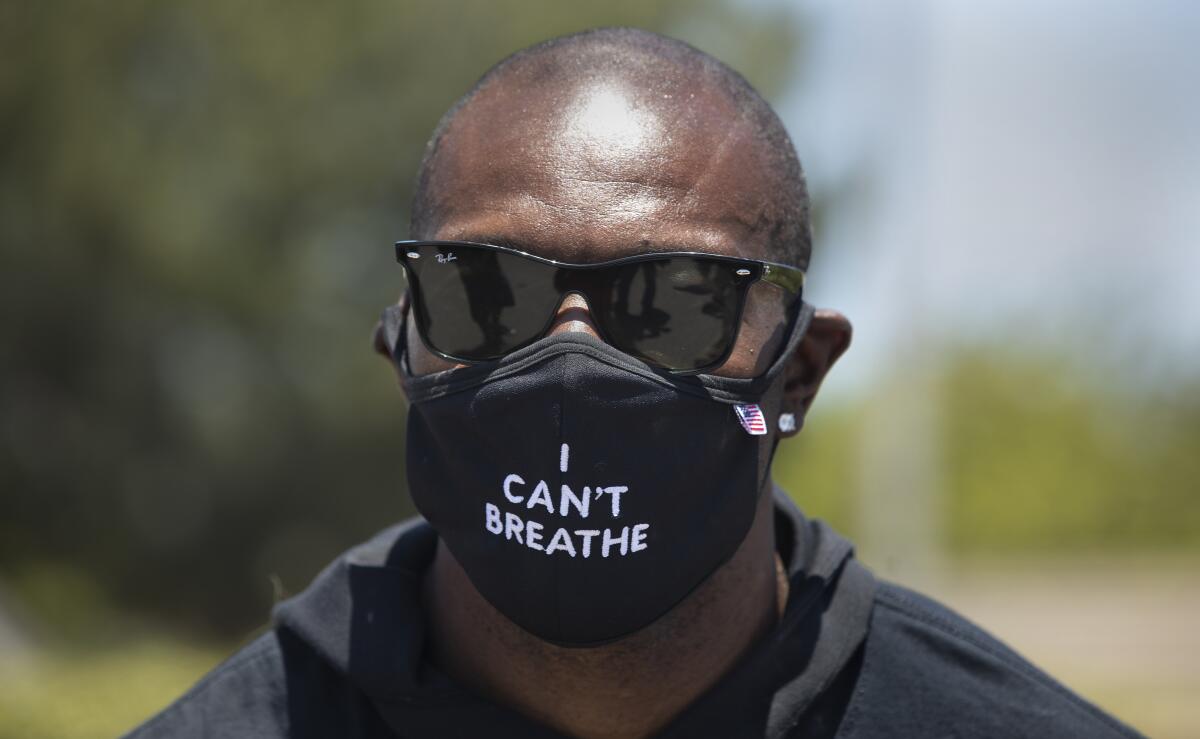
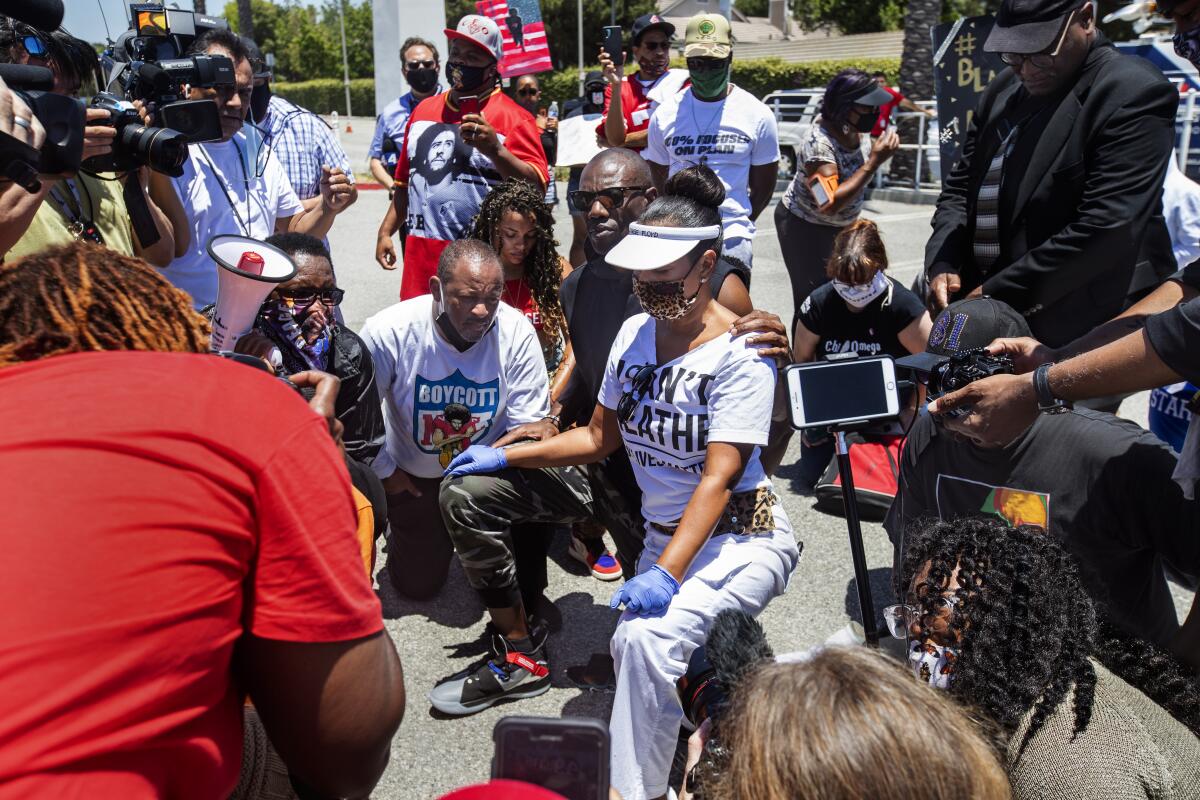
Global protests after Floyd’s death sparked fresh conversations about inequity and systemic racism, drawing renewed support for Kaepernick. After high-profile players posted a social media video last week calling on the NFL to be more vocal on these issues, Goodell released a video saying the NFL “admits we were wrong for not listening to NFL players earlier, and encourage all to speak out and peacefully protest.”
But Owens said that’s not enough. He believes Kaepernick still can play at an elite level, and Goodell needs to ensure a team will sign him.
“He needs an opportunity to get his job back,” Owens said. “This guy was stripped of his life. You can’t tell me that he is not capable of playing in the National Football League right now.”
Owens talked casually with Kweisi Gharreau — a friend and business partner since 2012 — on Saturday about organizing an event. They settled on Thursday because Owens attended Floyd’s funeral Tuesday in Houston. Owens said it was powerful to see the service but was “sad to get to know George Floyd in his death.”
The event was also personal for Gharreau, who said he met Kaepernick at a party in 2013, the year Kaepernick led the 49ers to a Super Bowl appearance that February. They share the same fraternity — Kappa Alpha Psi Fraternity, Inc. — and took a photo together. That instance always stood out to him, Gharreau said, because the quarterback was warm and personal. He said unless Goodell issues Kaepernick an apology, he and many other people he knows will boycott the NFL this season.
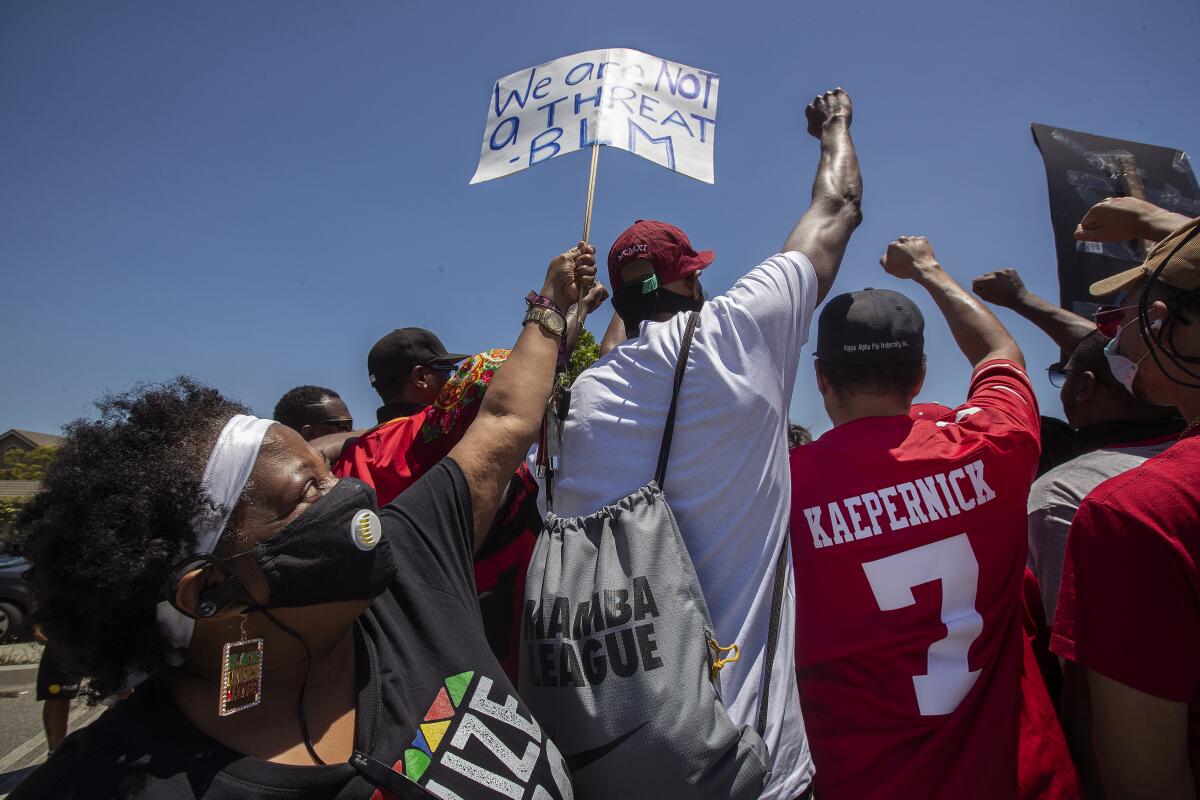
“We’ve already been three months without sports,” Gharreau said. “We can do another three months. It won’t take anything away from our lives. The NFL needs us. We don’t need it.”
About 200 people attended the event. Owens said he was happy to see a mix of different ages and races. Before it started, a white man asked Owens if he could take a picture with his daughter while kneeling.
The march completed its route halfway around the stadium and stopped in the parking lot behind the Forum. There, protesters held a moment of silence for a construction worker, Juan Becerra, who died last week when he fell an estimated 110 feet while working on the roof.
Gail Rosser, 51, said she felt obligated to come. She said her stepson was killed by police, and she wanted to show support for peaceful protests and Kaepernick’s cause.
“We need to show that Black lives matter,” she said. “People judge us based on the color of our skin, and they need to give us a chance so they can see who we are. It’s sad that it took such a tragic event for people to realize what he was kneeling for.”
After George Floyd’s death, the NFL apologized for not doing enough to fight racial injustice, but it needs to restore what it stole from Colin Kaepernick.
More to Read
Go beyond the scoreboard
Get the latest on L.A.'s teams in the daily Sports Report newsletter.
You may occasionally receive promotional content from the Los Angeles Times.
